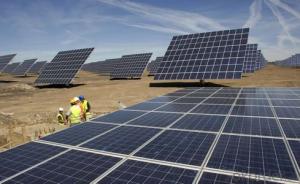Solar panels are a fantastic way to harness the power of the sun and reduce your carbon footprint. They are not only environmentally friendly but also a smart investment for your home. In this article, we’ll explore the benefits of solar panels, how they work, and tips for maximizing your home’s energy potential with them.
Why Choose Solar Panels?
&8212;&8212;&8212;&8212;&8212;&8212;-
The decision to install solar panels on your roof is a significant one. But with the rising cost of electricity and the need to reduce our carbon footprint, it’s a choice that more and more homeowners are making. Solar panels convert sunlight into electricity, which can be used to power your home. This not only reduces your reliance on the grid but also saves you money on your energy bills. Plus, you’ll be doing your part to combat climate change.
How Do Solar Panels Work?
&8212;&8212;&8212;&8212;&8212;&8212;-
Solar panels are made up of photovoltaic cells that absorb sunlight and convert it into electricity. This process is known as the photovoltaic effect. The electricity generated by the solar panels is direct current (DC), which is then converted into alternating current (AC) by an inverter. This AC electricity can then be used to power your home appliances and lighting.
Maximizing Your Home’s Energy Potential
&8212;&8212;&8212;&8212;&8212;&8212;-
To get the most out of your solar panels, there are a few key factors to consider:
1. Orientation and Tilt: The direction your roof faces and the angle at which the panels are tilted can greatly affect their efficiency. South-facing roofs are ideal in the Northern Hemisphere, while north-facing roofs are best in the Southern Hemisphere. The panels should also be tilted at an angle that matches your latitude to maximize sunlight exposure.
2. Shading: Make sure there are no obstructions, such as trees or buildings, that could cast shadows on your solar panels. Shading can significantly reduce their performance.
3. Size and Number of Panels: The size of your solar panel system will depend on your energy needs and the available roof space. A professional solar installer can help you determine the right size and number of panels for your home.
4. Quality and Efficiency: Not all solar panels are created equal. Look for high-quality panels with a good efficiency rating to ensure you’re getting the most out of your investment.
5. Maintenance: Regular cleaning and maintenance of your solar panels can help to keep them running at their best. This includes removing any debris, dust, or dirt that may have accumulated on the panels.
6. Incentives and Rebates: Many governments and utility companies offer incentives and rebates for installing solar panels. Be sure to research what’s available in your area to maximize your savings.
7. Battery Storage: Consider adding a battery storage system to store excess energy generated by your solar panels. This can be especially beneficial if you want to use solar power during peak hours or when the sun isn’t shining.
The Emotional and Financial Benefits
&8212;&8212;&8212;&8212;&8212;&8212;-
Installing solar panels can bring a sense of pride and accomplishment. Knowing that you’re contributing to a cleaner, more sustainable future is a powerful feeling. Plus, the financial benefits are hard to ignore. The initial investment can be offset by the savings on your energy bills and potential income from selling excess energy back to the grid.
Wrapping Up
&8212;&8212;&8212;&8212;&8212;&8212;-
Solar panels are a smart and eco-friendly way to power your home. By following the tips outlined in this article, you can maximize your home’s energy potential and enjoy the benefits of solar power for years to come. Whether you’re looking to save money, reduce your carbon footprint, or simply embrace a new technology, solar panels are a fantastic choice for homeowners.

